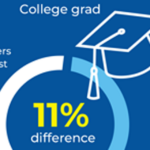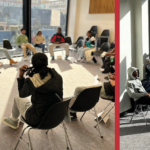Inspired in part by Business Insider’s Matt Drange, a new wave of state and local reporters are looking into serial sexual predators in schools.
By Alexander Russo
Is 2024 finally the year that journalists dig deep into the pervasive problem of serial sexual predators in schools — and that school systems tighten up their incredibly lax procedures?
If so, Business Insider’s Matt Drange will have had lots to do with it.
Two years ago, Drange published a scathing story about a beloved teacher who had been an active sexual predator at Drange’s own high school while he was a student.
Then last fall, Drange produced a follow-up story about a cluster of sexual predators who had been active at the same school over decades. And late last year, Drange came out with a third, national-level piece that described a widespread problem with serial sexual predators in schools — enabled by lax state laws, feeble district enforcement, and the use of Hollywood-style nondisclosure agreements that kept things hush-hush.
Since then, Drange has been recruiting interested state and local reporters to deepen and spread the story. He’s been named an Education Writers Association finalist for his work, An Epidemic of Sexual Abuse in Schools: Shoddy Investigations, Quiet Resignations, and a Culture of Secrecy Have Protected Predators, Not Students. And there’s a possible podcast or documentary in the works.
In a 2022 conversation about his initial story, Drange told me he’d been inspired in part by the work of former Oregonian reporter Bethany Barnes. In this new interview, Drange discusses the response to his most recent coverage, explains why some districts and states have been so slow to address serial sexual predators in schools, and describes some of the work that local and regional reporters are doing on this difficult topic.
This interview has been edited and condensed.
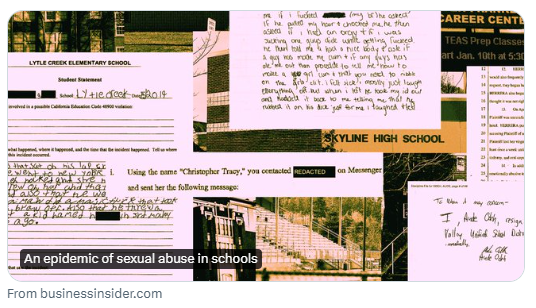
Above: Drange’s most recent piece (from December) looks at the nationwide problem of school-based sexual predators and the failures of districts and states to respond.
What’s happened in response to your most recent story?
Matt Drange: We’ve heard from a lot of folks who I think are just generally appalled by how often this appears to be happening. That was one of the big takeaways of the story, that we really still don’t have a good grasp on how often teachers are grooming students for sex. This is one of the big aspects that has stuck with a lot of readers.
We’ve also heard from school districts who are considering how they can improve their own systems for trying to adequately respond to allegations, investigate them thoroughly, or make sure that they’re doing what they can to share those with other would-be employers.
We’re just starting to talk now with lawmakers, aides, and policy folks at the state level, particularly some of the states where they lack some of the basic so-called “pass the trash” protections. So that’s one area that I think in the next couple of weeks, we’re going to have a lot more conversation around.
Has the U.S. Department of Ed been in touch?
MD: We did get a canned statement from the Department of Ed, which as of now has continued to decline to make anyone available to me for an interview, despite my repeated requests for the past four months.
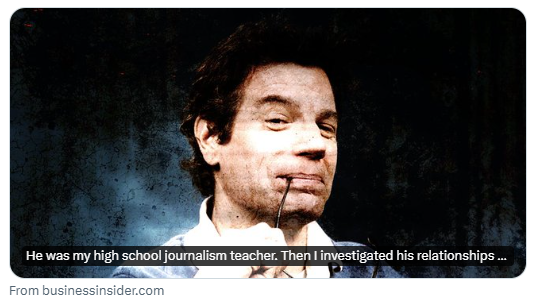
Above: Drange’s initial story described his investigation into a charismatic journalism teacher’s serial exploitation of students and the school’s failure to respond effectively.
How’s the response been among journalists to your callout for follow-up coverage?
MD: For the local reporter callout I believe we had 88 people sign up in the end. We just recently capped it. We want to be able to be sure that we can not only give all those folks documents in their coverage areas, but also answer any questions they might have.
How many meetings have you conducted, and what was shared?
MD: We had a pair of orientation calls this winter. We had a half-hour webinar where we gave an overview, shared the language of the request I used, as well as some of the common responses from districts, such as denials, delays, and redactions. In addition to local district documents, we’re also sharing data from the 33 states that responded to my public records requests for data on adverse action taken against teacher licenses, as well as data from NASDTEC for every state. It’s a big undercount in a lot of ways, but we’re offering it as well, and for the reporters covering areas where I didn’t get records, we’re offering at least the request language I use so that maybe they can use that as a starting point.
People seemed excited. After the call, we got more than 50 MOUs back from reporters saying that they will link back to our stories, credit us if they report on the documents we provided, and make efforts to avoid inadvertently publishing student information.
What’s it been like for you?
MD: You know, for me, personally, I started this six years ago reporting on my own teacher, and I did not expect at that point that I would be talking to a roomful of education reporters about similar records in their coverage areas. So it was a bizarre journey in some ways. But one that I’m glad I could take, and I certainly learned a lot along the way.
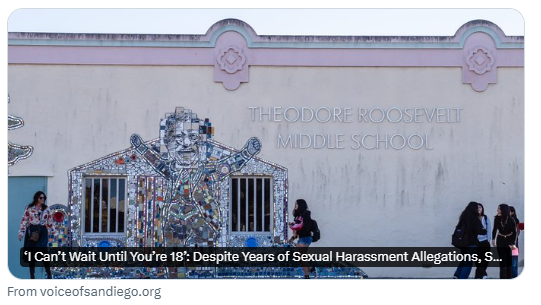
Above: A February 2024 Voice of San Diego story, ‘I Can’t Wait Until You’re 18,’ by Jakob McWhinney.
Looking down the line, do you imagine getting into the effects of state laws that have been passed?
MD: We’ve talked with survivors and advocates who have had their own experiences, like, for example, in Illinois, where a law was passed recently. We’ve pointed out some of these policy shortcomings in the story, but obviously, a law in and of itself may not change anything. How has it actually gone in states that have done that?
What’s being done around the culture in some of these schools, which I think is really at the heart of the issue? What is done in response when allegations about a teacher’s behavior are raised? And how is it handled? How is that internalized? Do people who work at that district feel that they can and should flag these issues? Do they feel they should remain quiet? What are the students feeling? Do they feel like they’re being heard?
So I think those are the longer-tail discussions that we’re really just starting to kind of crack open a bit. And I expect will continue for a long time.
Do you imagine also getting into why it has been so slow making changes?
MD: That may be an angle that we tackle. Where I’m based in California, for example, we’ve had lawmakers raise this issue before, and it didn’t really get very far. I don’t have a nuanced understanding of exactly why. I know in other states where “pass the trash” legislation has been brought up, what I’ve been told is that there has been pushback from teachers unions and superintendents. The common refrain that I think has been brought up is what about the false positives? Or, from the administrative standpoint, we’re stretched thin, what about the resources it takes to do some of this vetting?
What have you found about false positives?
MD: I certainly looked for examples of false positives and asked many, many people if they had any data on the frequency of that. I tried to explore that in the documents we received. They were exceptionally rare. I think there were less than 1% of the cases we got. Four were false positives out of about 400 that we confirmed. So very rare, indeed. The broader context for all of this is that most places are dealing with a teacher shortage right now. So anything that could make that problem harder to address in the eyes of administrators, I think you’re naturally going to have some pushback to that.
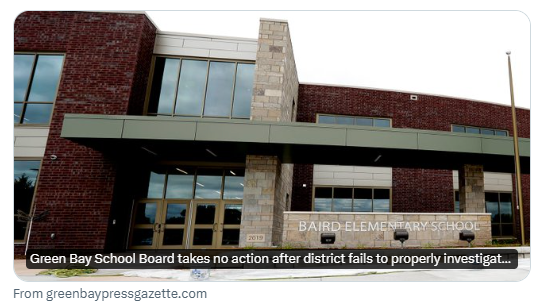
Above: A 2023 investigation from Danielle DuClos, Green Bay School Board takes no action after district fails to properly investigate abuse complaint. Her work on this topic has also been recognized by EWA.
Tell us about some collaborations with local reporters that you’ve already done.
MD: Danielle DuClos and I found one another organically back in 2022 when she requested all of the documents that Green Bay had provided me in response to a public records request. We ended up splitting the cost to process the request, which helped us both.
The idea now is to get this much larger cache of teacher disciplinary documents, which I only scratched the surface of with my most recent story, in front of as many other local reporters like DuClos as possible, so that they can tell the stories their communities need to know about.
What’s the best advice you could give a local beat reporter about making the best use of limited time?
MD: I’d say local beat reporters should dedicate a bit of time, even if it’s only 15-30 minutes per week, to requesting and obtaining documents from the school districts and state agencies they cover. So many of the cases of educators grooming students for sexual relationships that I came across played out, in part, in the open. Often, getting even a partial record of whether/how a district addressed allegations of teacher misconduct behind the scenes can lead you to more sources and prompt important questions about how effective a school’s efforts to ensure student safety actually are.
Related stories:
Your high school journalism teacher was a serial sexual predator (2022 Drange interview)
How Bethany Barnes became a star education reporter
‘A gift’: John Woodrow Cox on covering school gun violence
Hard reporting: Why reading went under the radar for so long – and what Emily Hanford is aiming to do about it.











